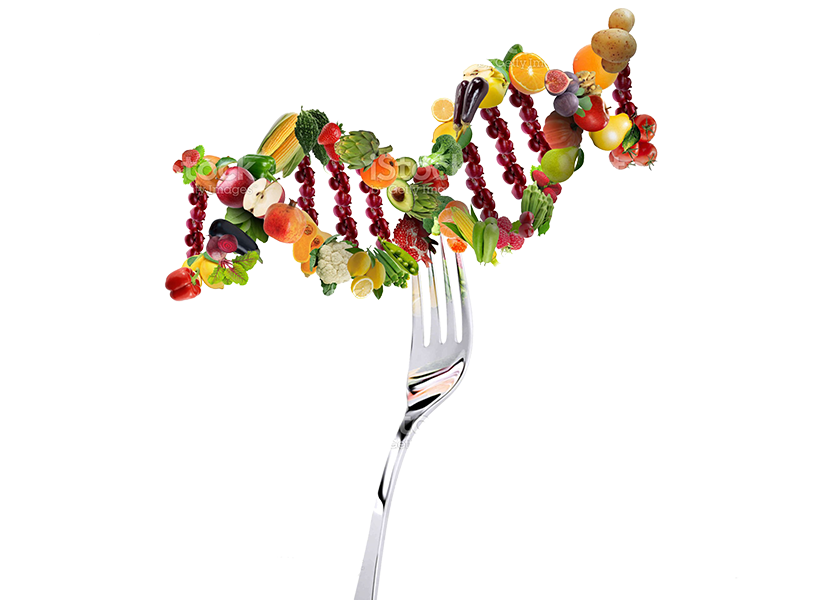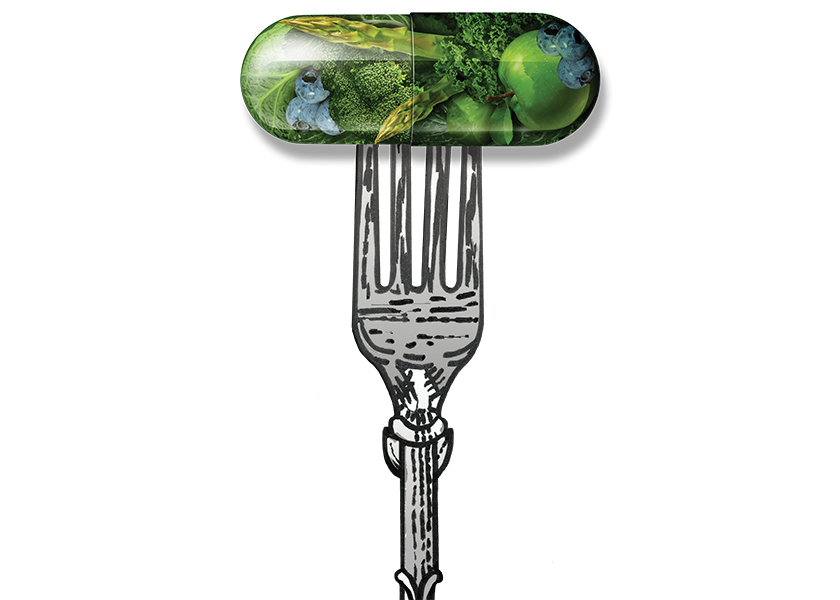How retailers are responding to the growing medical market

Imagine: A medical doctor sits in the patient room, prescribing fresh spinach, butternut squash, blueberries and apples to someone with a diet-related disease. And then the patient’s private health insurance, Medicaid or Medicare plan pays for all those groceries.
In this idealistic world, a shopping app suggests recipes that align with that doctor-prescribed diet and creates a healthy bundle of ingredients into one digital shopping cart. Discounts or vouchers could be available.
This dream is slowly becoming reality.
By October 2022, there were 108 produce prescription programs operating in 38 states, said Cathy Burns, CEO of International Fresh Produce Association. “But in order to make a real difference, we need many, many more,” she said.
That may happen.
There’s a growing medical marketplace for the fresh produce industry, and it’s starting to be administered by doctors, registered dietitians, retailers, food-as-medicine services, nonprofits and government programs for people with food insecurity, such as SNAP and WIC.
Everyone else could benefit next.
The U.S. National Institutes of Health will award $170 million within five years to clinics across the country for people to be able to predict individual responses to food and dietary routines, Burns said. “From that, precise individual nutrition plans can be created,” she said.
Fresh produce retailers and their suppliers are taking note. “It’s probably the last couple years that people have been buying more healthy food, more produce than processed foods, because I've seen a big increase in my percentages that I do,” said Chris Jorgensen, produce manager at Food Lion in Gloucester, Va. He’s a 2022 IFPA retail produce manager award winner.
That increase is probably, in part, a side effect of the COVID-19 pandemic, as well as New Year’s resolutions, but those sales may signal a long-term shift in shopper habits.
Florida citrus flies off the shelves in January, said Philip A. Penta, co-owner with Claudia and Javier Gonzalez of 3 Guys from Brooklyn. It's a 24-hour fixed open-air produce market, wholesale produce and grocery store.
To capitalize on early winter’s health focus, the store offers smoothies and fresh-squeezed juice, selling 700 bottles of juice in a week for as much as $9.99 a bottle, at 16 ounces and 32 ounces. “It’s crazy,” Penta said.
Citrus and cold-pressed juices with nutrient-dense kale, ginger, beets and lemon are popular for their health benefits, said Tom Cingari, vice president of produce, floral and e-commerce at Cingari Family ShopRite Supermarket, which includes 12 Connecticut stores.
“I think people were looking at their overall health a little bit differently with the COVID-19 pandemic, and I think that stuck,” Cingari said. “These cold-pressed juices are not cheap, right? But you're getting a tremendous health benefit from them.”
Many supermarkets have dietitians and pharmacies, so the food-medicine connection isn’t a stretch.
Scarborough, Maine-based Hannaford, which has 185 stores in the Northeast, offers registered dietitians in-store at 50 locations. They’ve led more than 1,000 in-store classes, tours and online seminars per year on topics such as heart-healthy eating, shopping using the Guiding Stars nutrition navigation system, meal planning made easy, and nutrition for kids.
Hy-Vee, which has more than 285 retail stores across eight Midwestern states, has a robust dietitian program too, offering on-site and online classes and workshops. In a four-week Healthy Habits menu program, dietitians help people one-on-one find a balanced lifestyle that fits their goals. Participants get a weekly menu tailored to their needs with recipes and grocery lists.
On Jan. 6, Kroger Health, the health care division of Cincinnati-based The Kroger Co., launched its brand campaign, “A World of Care is In-Store.” The company operates 2,750 grocery retail stores under various banner names nationwide, and 2,256 of those locations have pharmacies. “We sit at the nexus of food and pharmacy, which uniquely positions Kroger Health to improve outcomes through simplified health, wellness and nutrition solutions,” Kroger Health President Colleen Lindholz said in a news release. Shoppers can schedule a telenutrition appointment with a registered dietitian, explore health solutions, try a new diet or shop using OptUP nutrition ratings to make informed choices.
And Instacart is combining chef, doctor and dietitian-approved food bundling to simplify the healthy shopping experience.
Related news: At IFPA, panelists discuss how retailers, suppliers can implement ‘Food as Medicine’ in 2023
In September, Instacart rolled out new Care Carts, a product that lets healthcare providers and caregivers order groceries on a patient’s behalf after they’re discharged from the hospital or when they’re following a prescribed meal plan, according to Fast Company. And those who don’t want their grocery service handled by someone else can still access prepared lists from their nutritionist or dietitian.
“Their philosophy in offering these food bundles is that if companies realize what's good for society is also good for business, they’re going to invest more,” Burns said about Instacart.
The online grocery ordering and delivery logistics and tech giant is also piloting Fresh Funds, a new feature that enables organizations such as health care insurers to give people funds to buy food from retailers on the platform.

This Food as Medicine movement is in no way suggesting we should all forgo doctor-prescribed pharmaceuticals for smoothies when we have a serious disease. At least, no responsible marketer is employing that dangerous tactic.
“Is produce medicine? Yeah, but it’s food,” said Wendy Reinhardt Kapsak, former head of Produce for Better Health Foundation and a registered dietitian nutritionist. "This concept isn’t necessarily going to appeal to everyone, but it’s necessary. These programs are providing dollars to purchase fresh product — significant federal dollars into these pilot programs. We’re asking more of retail."
Challenges and change
Unlike the way the makeup of a pharmaceutical drug is the same regardless the brand, the nutritional value of fresh produce can vary widely among suppliers, based on seed variety, growing conditions, cold-chain adherence and at-home storage and cooking techniques.
Yet, produce is undeniably healthy. How can we not market that?
“Policymakers, healthcare providers and social service organizations have begun to recognize that connecting people with complex health conditions to Food is Medicine interventions is an effective and low-cost strategy to improve health outcomes, decrease utilization of expensive health service and enhance patient quality of life,” researchers wrote in a study from the Center for Health Law and Policy Innovation of Harvard Law School.
There really is a market here that suppliers, retailers and wholesalers can explore. The cost savings of this more holistic approach may encourage more healthcare and insurance companies to cover your product as a benefit.
National implementation of medically tailored meals for patients with diet-sensitive conditions and activity limitations has the potential to avoid about 1.6 million hospitalizations and save $13.6 billion annually, according to the American Medical Association.
Related news: Price-conscious shoppers still want food to be medicine
Compared with patients who didn’t receive these meals, patients who did receive medically tailored meals have been associated with a 37% to 52% lower risk of hospitalization, 16% to 31% reduction in monthly health care expenditures and decreased net costs of about $2,500 per patient-year — after meal costs.
These meals are generally provided by community-based organizations supported by grants, donations and other ad hoc restricted funding from home health care services benefits, Medicare Advantage programs, or state Section 1115 waivers. State and federal bills proposing expanded access to these meals in Medicaid and Medicare didn't pass in 2021.
Retailers such as Giant Food are partnering with these community-based organizations to offer produce prescriptions but are looking into how to make these programs scalable and sustainable without grants and nonprofits.
Make it fun
These food interventions won't create sustainable produce consumption if the produce doesn’t taste good and appeal on an emotional level. The motivation has to be pleasure.
“We cannot treat produce as medicine. People don’t want to hear that — even if it is medicine. We have to make it fun,” said Lisa Helfman, senior director of public affairs at H-E-B and founder and chairperson of Brighter Bites, a nutrition and education nonprofit for schoolchildren and their families. “We have to do a great job as retailers to make it fun and exciting, engage people and demystify it for them, so they try it, it tastes good, and they buy it again.”
Reinhardt Kapsak agreed.
“Less of the finger wagging, that it’s going to help with the disease you’re going to get later. Nobody wants to talk about that,” she said. “It’s about how you feel after you eat it, while you eat it. That’s what matters.”
Produce has to create a great sensory experience, connect to them culturally and evoke family memories. It also has to be easy.
So, we have to shift the conversation a bit, based on Produce for Better Health research that shows long-term behavior changes of increasing produce consumption require a system of habits tailored to wherever the person is stuck in their fruit and vegetable consumption journey. That stumbling block may be in the planning, purchasing, preparing, eating, storing or enjoying stage.
Food, nutrition and health professionals — as well as the broad-based fruit and vegetable industry — can support consumers by providing behavior-based cues; creating frictionless, easy and enjoyable experiences; and showcasing the many immediate rewards of eating and enjoying fruits and vegetables.
Research continues to show habit formation interventions are most effective when they help consumers simply add an action to their existing routine, rather than encouraging a whole new behavior.
Consumers need help, which is why H-E-B has almost 100 retail dietitians to offer nutrition counseling, Helfman said.
“We’re opening clinics all over Texas, and we’re getting into the health care business. And it’s in sync with our registered dietitians. People tend to trust their doctors. They get a diagnosis, and they move forward with it,” Helfman said. “Families also tend to trust their schools … so, if you can come in on one of those avenues, you are more likely to have that behavior change.”
“You also need to shift the next generation of doctors in their thinking, that food needs to be part of the prescription.”
What are some of the major food-medicine services so far?
The Center for Health Law and Policy Innovation of Harvard Law School and the American Medical Association explain.
Medically Tailored Meal: Medically tailored meals are fully prepared, nutritionally tailored and generally home-delivered healthy meals for people with conditions such as diabetes, heart failure, end-stage kidney disease, HIV infection and cancer. Programs generally provide lunch and dinner for five days per week, designed by a registered dietitian based on disease diagnosis and nutritional assessment. These programs are often designed to treat people with lower income, food insecurity, and/or limitations on the instrumental activities of daily living that make it difficult to prepare healthy meals. People are referred by a health care provider or plan.
Medically Tailored Food Packages: Medically tailored food packages include a selection of minimally prepared grocery items selected by a registered dietitian nutritionist or other qualified nutrition professional as part of a treatment plan for an individual with a defined medical diagnosis. The recipient of medically tailored food is typically capable of shopping for and picking up the food and preparing it at home and is referred by a health care provider or plan.
Nutritious Food Referrals: These referrals provide funds for free or discounted nutritious foods. People must receive referrals from health care providers or plans after being identified as having, or being at risk for, diet-related diseases. These funds may be spent at a variety of retailers such as grocers, farmers markets or within Community Supported Agriculture programs.







